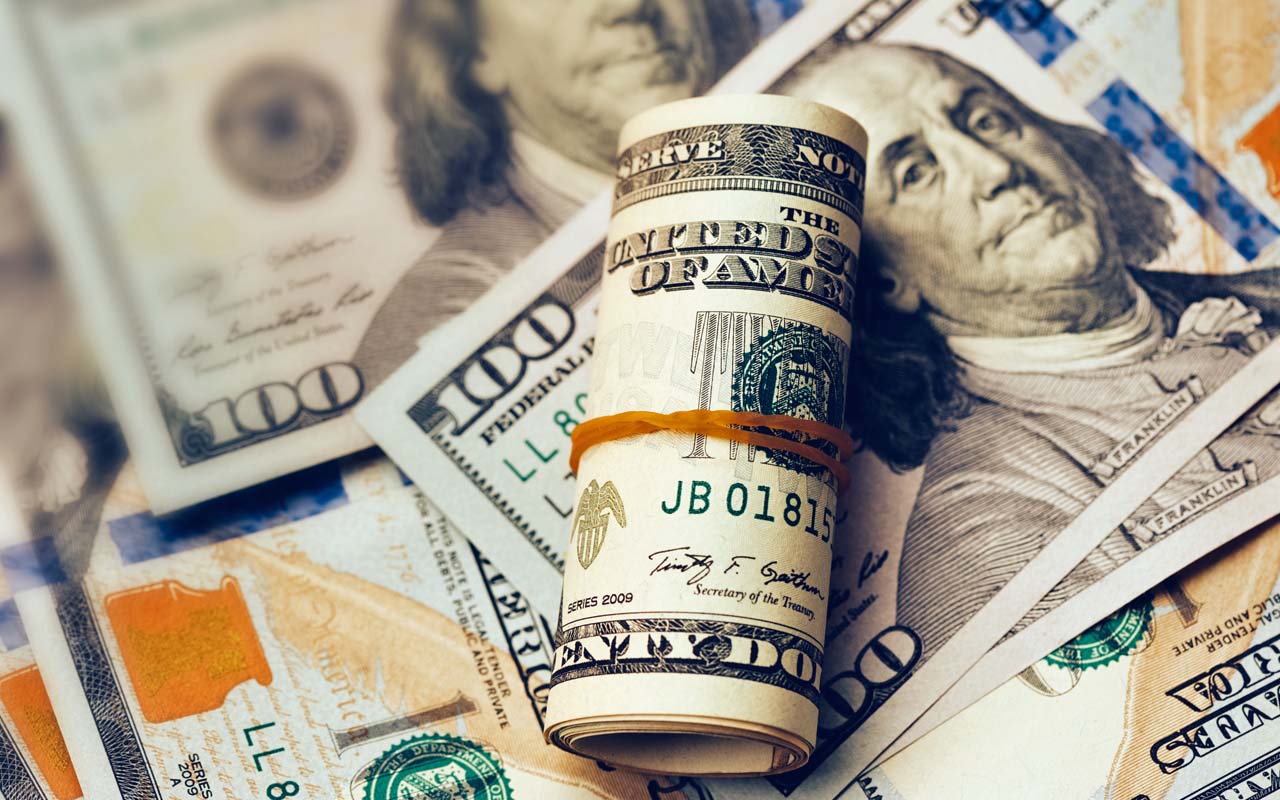How to Invest Your Stimulus Check


Profit and prosper with the best of Kiplinger's advice on investing, taxes, retirement, personal finance and much more. Delivered daily. Enter your email in the box and click Sign Me Up.
You are now subscribed
Your newsletter sign-up was successful
Want to add more newsletters?

Delivered daily
Kiplinger Today
Profit and prosper with the best of Kiplinger's advice on investing, taxes, retirement, personal finance and much more delivered daily. Smart money moves start here.

Sent five days a week
Kiplinger A Step Ahead
Get practical help to make better financial decisions in your everyday life, from spending to savings on top deals.

Delivered daily
Kiplinger Closing Bell
Get today's biggest financial and investing headlines delivered to your inbox every day the U.S. stock market is open.

Sent twice a week
Kiplinger Adviser Intel
Financial pros across the country share best practices and fresh tactics to preserve and grow your wealth.

Delivered weekly
Kiplinger Tax Tips
Trim your federal and state tax bills with practical tax-planning and tax-cutting strategies.

Sent twice a week
Kiplinger Retirement Tips
Your twice-a-week guide to planning and enjoying a financially secure and richly rewarding retirement

Sent bimonthly.
Kiplinger Adviser Angle
Insights for advisers, wealth managers and other financial professionals.

Sent twice a week
Kiplinger Investing Weekly
Your twice-a-week roundup of promising stocks, funds, companies and industries you should consider, ones you should avoid, and why.

Sent weekly for six weeks
Kiplinger Invest for Retirement
Your step-by-step six-part series on how to invest for retirement, from devising a successful strategy to exactly which investments to choose.
If you find yourself in the enviable position of being able to ponder how to invest your stimulus check, thank your lucky stars … for plenty of reasons.
As you're well aware by now, the $2 trillion CARES Act rescue package included stimulus checks of up to $1,200 for most individuals living in the U.S. The sad reality is, many Americans will need every cent of that for day-to-day basics. But more than a few people are fortunate enough to be able to put that money to work. Anecdotally, a few friends have already asked me about how to invest their recently deposited stimulus checks. And more people are sure to wonder the same as the Treasury proceeds with its disbursements.
The good news? Despite how ugly the market looks right now – in many cases, because the market looks so ugly right now – you've got options. And plenty of 'em.
Today, we're going to look at how to invest your stimulus check. Because everyone's risk tolerance is a little different, we'll be exploring a variety of options – conservative, aggressive and a little in between.
Data is as of April 23.

A Good Ol' Broad Market Index Fund
Especially if you're a novice investor, one of the best things you can do with your stimulus check is to plunk it down into a boring index fund.
Back in 2008, near the depths of the last bear market, Knight Kiplinger wrote to readers, “Why I'm Buying Stocks.” What did he buy on discount? Everything. "I invested in virtually the entire universe of U.S. publicly traded companies, through a "total market" index fund," he wrote. "This gives me a sliver of some 2,500 companies, large and small, in every corner of American business – everyday consumer products, heavy manufacturing, technology, energy, health care, food and agriculture, and yes, even housing and financial services, the most-shunned stocks of all. I'm not sure which of these sectors will fare better than the others, so I hedged my bets by buying all of them."
I know. It's a boring, unsatisfying suggestion. Scroll down if you want to get to the exciting stuff.
But if you're looking to put money to work right away, and you're inexperienced with researching stocks, plain ol' index funds can give you access to a wide range of stocks – typically for minimal fees. Stocks, at least for now, are well off their nadir, but you'd still be buying on a considerable dip right now. The S&P 500, for instance, is down about 15% year-to-date and roughly 19% off its all-time highs.
A straightforward suggestion is an S&P 500 tracking fund such as the Vanguard S&P 500 ETF (VOO) or SPDR Portfolio S&P 500 ETF (SPLG), both of which charge just 0.03%, or $3 for every $10,000 invested, each year to own.
But there are other ways to “buy the market.” The Vanguard Total Stock Market ETF (VTI), for instance, holds 3,535 stocks, spread across large-, mid- and even small-cap companies. The fund is cap-weighted, meaning that each stock's weight is determined by its market cap, meaning that most of its weight is in the same stocks VOO and SPLG hold. But you get a little more exposure to the “growthier” small companies that trade on U.S. exchanges.
If you're worried that the S&P 500 is too top-heavy – Microsoft (MSFT), Apple (AAPL), Amazon (AMZN), Facebook (FB) and Alphabet (GOOGL) make up nearly 20% of the index's weight – you can try the Invesco S&P 500 Equal Weight ETF (RSP). This fund invests in each S&P 500 stock at the same weight every quarter when the fund rebalances. Do you want more of these tech giants? Consider the Invesco QQQ Portfolio (QQQ), which invests in the 100 largest nonfinancial companies in the Nasdaq; those aforementioned technology companies make up nearly 45% of the portfolio!

Dividend Aristocrats and Other “Bulletproof” Blue Chips
Wall Street analysts and other market experts generally agree the economy, earnings and the stock market are in for short-term pain. Where they diverge is how soon everything will pick back up again.
That unknown makes all the difference in the world. It's one thing to survive a quarter or two with considerably diminished profits. It's another to, say, survive amid rolling quarantines through mid-2021 or persistently low unemployment even after restrictions are lifted because many Americans continue to shut themselves in until a COVID-19 vaccine is available.
If you want to invest your stimulus check while hedging against a bad-case scenario, your best equity bets are big, blue-chip stocks with bulletproof balance sheets. Companies that are low on debt and high on cash and investments, and that can generate cash even as business slows, are more likely to survive. More importantly, they offer numerous other advantages:
- They're in a position to gain market share on lesser-capitalized competitors.
- They're in a position to continue marketing, researching and developing products and services, setting themselves up for growth on the other end of a recession.
- They're in a position to make transformative M&A moves as acquisition targets get cheaper.
Income investors have another reason to target these kinds of companies: They're more likely to continue delivering regular cash dividends. Dozens of firms have been forced to cut or suspend their dividends, leaving retirees – many of whom rely on those payouts to tackle their regular expenses – in the lurch.
If income is a priority, consider browsing the ranks of the Dividend Aristocrats: S&P 500 companies that have increased their dividends without interruption for at least 25 years. That means their payouts have already survived two bear markets (2007-09 and 2000-02), and in many cases, several more.
Most of these companies have the means to keep their payouts intact. And even the members that are struggling the most are moving heaven and earth to remain in the club. Take Chevron (CVX), for example. In the face of perilously low oil prices, CEO Michael Wirth called the dividend Chevron's “No. 1 priority” – and CVX is cutting buybacks and even capital expenditures just to keep its payout intact.
Chevron (or any other energy stock, for that matter) might be too speculative for some tastes. That's OK: The Aristocrats include many other stocks with more stable outlooks.

Work-From-Home Stocks
Call them “work-from-home” stocks, “stay-at-home” stocks or “social distancing” stocks …
… but don't call them a fad.
Web conferencing. Collaboration software. Home health. Streaming media. Yes, some of these stocks have become overheated in the short-term – think Zoom Communications (ZM, +150% year-to-date) and Teladoc Health (TDOC, +123%) – as investors look for anything that's growing while the economy is shrinking. But while they might cool down in the wake of an eventual “reopening” of the economy, the future is in their favor.
This forced work-from-home experiment has demonstrated that some organizations can indeed function, and function well, with most if not all of their employees working full-time from home. While many Americans are likely to trickle back into the office as restrictions are gradually lifted, expect the growth of regular remote working to accelerate now that more employees have enjoyed some of the benefits (such as the time and money saved by not commuting) – and as employers realize the potential cost savings of smaller office spaces.
This trend should be a boon not just for firms that facilitate this kind of work, but other companies that offer digital convenience, including e-commerce and telehealth firms.
You could invest some of your stimulus check in some of these individual names. But if you want to avoid single-stock risk, just wait. Exchange-traded fund (ETF) provider Direxion has filed for a fund focused on stocks that would benefit from more virtual work, with the appropriate ticker symbol “WFH.”

Moonshots
If $1,200 suddenly pops into your lap, why not use it to take a flyer on a high-risk, high-reward play? If it doesn't pan out, all you've lost is a windfall that you weren't expecting in the first place.
That doesn't mean you should go out and plunk your stimulus check on a blind gamble, of course. But there's nothing wrong with trying to generate a little alpha with an aggressive growth play – indeed, many financial professionals will tell you there's nothing wrong with allocating a little of your portfolio to the occasional moonshot.
Or, rather than growth, you could consider deep, deep value investing. Stocks in a number of industries – think casinos, cruise lines, airlines and oil production – have been driven into the ground. But a few companies that are effectively priced for disaster could very well bounce back thanks not just to an eventual economic recovery, but consolidation within their industries as the weaker players fail.
Consider the airline industry. While carriers have watched business all but dry up – Delta Air Lines (DAL), for instance, recently reported that it's burning $100 million in cash each day and estimate second-quarter revenues will decline 90% year-over-year – it's unlikely the industry will be allowed to collapse completely. It might not look the same, some carriers might be smaller and others might disappear, but the survivors could prove to be lucrative picks, much like they were following drastic declines in 2008-09.
Southwest Airlines (LUV) might be the pick of the litter. Oh, it's ugly. LUV, which has already tapped $2.3 billion from a credit line, is applying for up to $12 billion in government aid. And it's at risk of being forced to implement its first involuntary furloughs in company history.
But Southwest also has one of the best reputations among airline passengers and consumers alike, it has a value tilt, and it entered this crisis with one of the sturdiest balance sheets in the industry thanks to able management. Those are advantages you want out of any airline trying to claw its way out of this mess.

Your Fellow Man
The coronavirus outbreak is exacting a terrible economic toll on individual Americans and community businesses alike. While Washington has delivered trillions of dollars in aid – including these stimulus checks – much, much more help is needed.
If you want to help small businesses while also earning a small return, you can make traditional investments via microloans. Companies such as LendingClub (LC), Prosper and Kiva allow you to make small-dollar investments in other businesses via their platforms. LendingClub, for instance, has individual accounts that require a mere $1,000 minimum investment; with that, you can invest by lending to one company, or spread out your money across multiple firms in increments as small as $25.
What kind of returns can you expect? LendingClub provides an example that shows an average 14% interest rate for a portfolio, then backs out 8% in principal and interest losses and 1% in fees for an annualized 5% net return. Just keep your eyes open: This isn't a normal investing environment, so your results could vary considerably.
If you're less concerned about making a financial gain, you can simply inject local businesses with a little cash. Patronize local businesses through their e-commerce sites. If you use Uber Eats for takeout from your favorite local restaurant, consider their in-app button allowing you to donate extra money directly to the restaurant – and Uber will match donations (up to $3 million total) with a contribution to the Restaurant Employee Relief Fund. In some cases, businesses are setting up GoFundMe, Indiegogo or other crowdfunding sites to drum up much-needed funds.
At the simplest level, you can help your fellow Americans by donating to a local or state food bank, or other charities that can help out the nation's most vulnerable at this time. If you do plan on giving, consult a charity-rating site such as Charity Navigator to ensure you're donating to an organization that will make good use of your contributions.
Kyle Woodley was long AMZN, FB, LUV, MSFT, QQQ and VOO as of this writing. He is pledging a portion of his stimulus check (whenever it arrives) to the Greater Cleveland Food Bank.
Profit and prosper with the best of Kiplinger's advice on investing, taxes, retirement, personal finance and much more. Delivered daily. Enter your email in the box and click Sign Me Up.
Kyle Woodley is the Editor-in-Chief of WealthUp, a site dedicated to improving the personal finances and financial literacy of people of all ages. He also writes the weekly The Weekend Tea newsletter, which covers both news and analysis about spending, saving, investing, the economy and more.
Kyle was previously the Senior Investing Editor for Kiplinger.com, and the Managing Editor for InvestorPlace.com before that. His work has appeared in several outlets, including Yahoo! Finance, MSN Money, Barchart, The Globe & Mail and the Nasdaq. He also has appeared as a guest on Fox Business Network and Money Radio, among other shows and podcasts, and he has been quoted in several outlets, including MarketWatch, Vice and Univision. He is a proud graduate of The Ohio State University, where he earned a BA in journalism.
You can check out his thoughts on the markets (and more) at @KyleWoodley.

